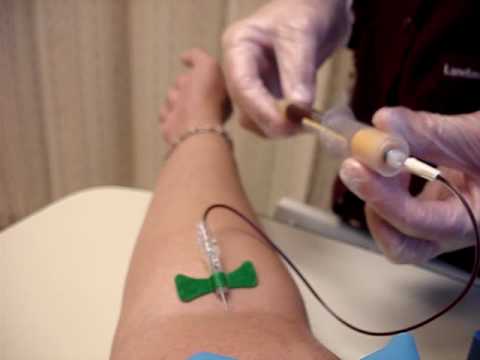Table of Contents
A Comparison of Features of Anorexia Nervosa and Bulimia Nervosa
| Features | Anorexia nervosa |
|---|---|
| Laboratory abnormalities | Hypoglycemia, leukopenia, elevated liver enzymes, euthyroid sick syndrome (low TSH level, normal T 3 , T 4 levels) |
| ECG findings | Low voltage; prolonged QT interval, bradycardia |
• Jan 15, 2003
Accordingly, Can anorexia cause high white blood cell count? However, there is an important blood test to watch out for that may be abnormal even in those who purely restrict, most typically in anorexia nervosa or individuals who have experienced significant rapid weight loss – the white blood cell count
What are the 2 main causes of anorexia? The exact causes of anorexia nervosa are unknown However, the condition sometimes runs in families; young women with a parent or sibling with an eating disorder are likelier to develop one themselves Then there are psychological, environmental, and social factors that may contribute to the development of anorexia
What do blood tests show? Blood tests can be used for many different things, including to check cholesterol and blood glucose levels These help monitor your risk of heart and circulatory diseases and diabetes, or how your condition is being managed Tests for different chemicals and proteins can indicate how your liver or kidneys are working
Further, What is the most common medical complication of anorexia? Cardiac Bradycardia (pulse <60) and hypotension are among the most common physical findings in patients with anorexia nervosa, with bradycardia seen in up to 95% of patients
How does anorexia affect white blood cells?
An estimated one-third of anorexic patients have mild anemia (low red blood cell count) Leukopenia (low white blood cell count) occurs in up to 50 percent of anorexic patients
What is the difference between anemia and anorexia?
Anorexia is an eating disorder that can bring about anemia People who experience anemia lack enough healthy red blood cells to carry oxygen to body tissues Anemia is a condition that typically causes people to feel weak, dizzy and fatigued Symptoms of anemia can range from mild to severe
What happens to your brain when you have anorexia?
Parts of the brain undergo structural changes and abnormal activity during anorexic states Reduced heart rate, which could deprive the brain of oxygen Nerve-related conditions including seizures, disordered thinking, and numbness or odd nerve sensations in the hands or feet
What is the most successful treatment for anorexia?
1 In the majority of clinical trials, Enhanced Cognitive Behavioral Therapy (CBT-E) has been shown to be the most effective treatment for adult anorexia, bulimia and binge eating disorder Enhanced CBT (CBT-E) was designed specifically for eating disorders
When does anorexia become serious?
The disorder is diagnosed when a person weighs at least 15% less than their normal/ideal body weight Extreme weight loss in people with anorexia nervosa can lead to dangerous health problems and even death
Why are antihistamines used for anorexia?
Anorexia Nervosa Cyproheptadine – Is an antihistamine that stimulates appetite and may help relieve depression associated with appetite loss and improve appetite for people with anorexia
How do you develop anorexia?
The exact causes of anorexia nervosa are unknown However, the condition sometimes runs in families; young women with a parent or sibling with an eating disorder are likelier to develop one themselves Then there are psychological, environmental, and social factors that may contribute to the development of anorexia
What are three warning signs of anorexia?
Symptoms of Anorexia
- You don’t eat enough, so you’re underweight
- Your self-esteem is based on the way your body looks
- You are obsessed with and terrified of gaining weight
- It’s hard for you to sleep through the night
- Dizziness or fainting
- Your hair is falling out
- You no longer get your period
- Constipation
How does anorexia develop?
The causes that may contribute to a person developing anorexia nervosa include: Psychological factors, such as a high level of perfectionism or obsessive-compulsive personality traits, feeling limited control in life and low self-esteem, a tendency towards depression and anxiety and a poor reaction to stress
What is restrictive anorexia?
A person with the restricting subtype of anorexia nervosa severely restricts energy intake and weight loss occurs primarily through dieting, fasting and/or excessive exercise Recurrent episodes of binge eating or purging behaviour have not been observed in the past three months
What are red flags for anorexia?
If you are concerned that you or someone you know has anorexia, watch for these red flags that may indicate the need for anorexia treatment: Frequent comments about feeling fat or overweight, despite weight loss Consistent excuses to avoid mealtimes or situations involving food Lying about how much food has been
What does the beginning of anorexia feel like?
low self-esteem, feeling worthless or like you’re not good enough Losing weight can start to feel like a sense of achievement or a way to feel a sense of worth perfectionism having another mental health conditions, particularly depression, self-harm and anxiety
What are the first side effects of anorexia?
Physical signs and symptoms of anorexia may include:
- Extreme weight loss or not making expected developmental weight gains
- Thin appearance
- Abnormal blood counts
- Fatigue
- Insomnia
- Dizziness or fainting
- Bluish discoloration of the fingers
- Hair that thins, breaks or falls out






